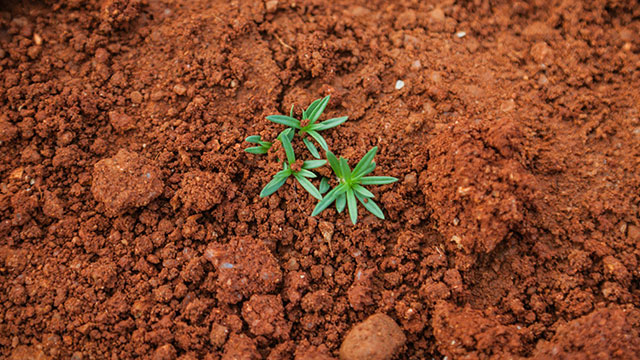Microbes could play a big role in mitigating greenhouse gas emissions
Strategies aimed at reducing methane emissions might be missing the mark because of tiny but crucial pieces of the puzzle that are often overlooked – microbes.
“They’re the most abundant of all life forms, but we underappreciate them because they’re not part of our visible world,” says Lisa Stein, Canada Research Chair in Climate Change Microbiology and professor in the Faculty of Science.

Lisa Stein
 Photo by Paul Mocan |
| More on Science |
| Unlocking the mysteries of Mars
|
| Research uncovers twilight’s surprising impact on plant growth
|
| Sitting less, moving more helps stroke patients recover mobility
|
According to a recent perspective paper published in Science, microbial communities often respond to efforts to reduce methane emissions by producing nitrous oxide, another greenhouse gas. This can lessen or even negate the positive impact of these emission reduction strategies.
“We have to make sure that whenever we’re looking at strategies for mitigating greenhouse gases, we’re considering the broader picture,” Stein says.
To better understand how this microbial process unfolds, consider the example of a farmer growing crops. Farmers want to ensure their plants have the best possible environment for growth, so they liberally scatter urea or ammonia-based fertilizer products all over their fields. But before the plants can fully absorb it, the microbes in the soil go looking for a snack.
“They’re having a Thanksgiving banquet every time you fertilize the soil, and then they get gassy and they emit nitrous oxide,” says Stein. She explains that the soil starts out containing adequate oxygen for normal microbial processes. But then, when “we’re adding fertilizer or irrigating it, we get a reduction in oxygen that changes the way microbes metabolize and we get more greenhouse gases.”
Among the greenhouse gases contributing to climate change, methane and nitrous oxide come second and third to carbon dioxide as the worst culprits. They’re also more efficient at trapping heat than CO2: methane can hold about 80 times more heat on a 20-year time scale, and nitrous oxide can trap about 300 times more on a 100-year time scale.
“When we talk about the greenhouse effect, we mean that these gases we’re emitting into the atmosphere through our human activities are acting as a blanket,” says Stein. In theory, sunlight that hits Earth is reflected back into space, but in practice, the blanket of gases traps that solar radiation and the temperature on Earth starts to climb.
Though microbes can negate the success of some mitigation efforts, they also hold promise for biology-based strategies that may have a stronger overall climate benefit.
“The brilliance of nature is that it’s always creating balances,” says Stein. There are microbes that make methane, called methanogens, as well as microbes that consume methane, methanotrophs. While there’s no real way to speed up the enzymatic processes these microbes carry out, we can help create environments that tip the balance in favour of methanotrophs, she says.
One approach beneficial in environments such as rice paddies and landfills is to provide more oxygen to the microbial communities’ ecosystems. Another incorporates rock dust, biochar or other soil amendments that retain nutrients, like copper and iron, and provide surfaces that promote the growth of methanotrophs. Both strategies can allow the methanotrophs to thrive, but caution must be taken not inadvertently to create conditions where other microbes produce nitrous oxide, Stein explains.
“We want to promote more methanotroph growth because even though we can’t speed their activity, we can create situations where there’s more of them. More bacterial cells means more removal or more control of methane emissions.”
| By Adrianna MacPherson
This article was submitted by the University of Alberta, a Troy Media Editorial Content Provider Partner.
The opinions expressed by our columnists and contributors are theirs alone and do not inherently or expressly reflect the views of our publication.
© Troy Media
Troy Media is an editorial content provider to media outlets and its own hosted community news outlets across Canada.
